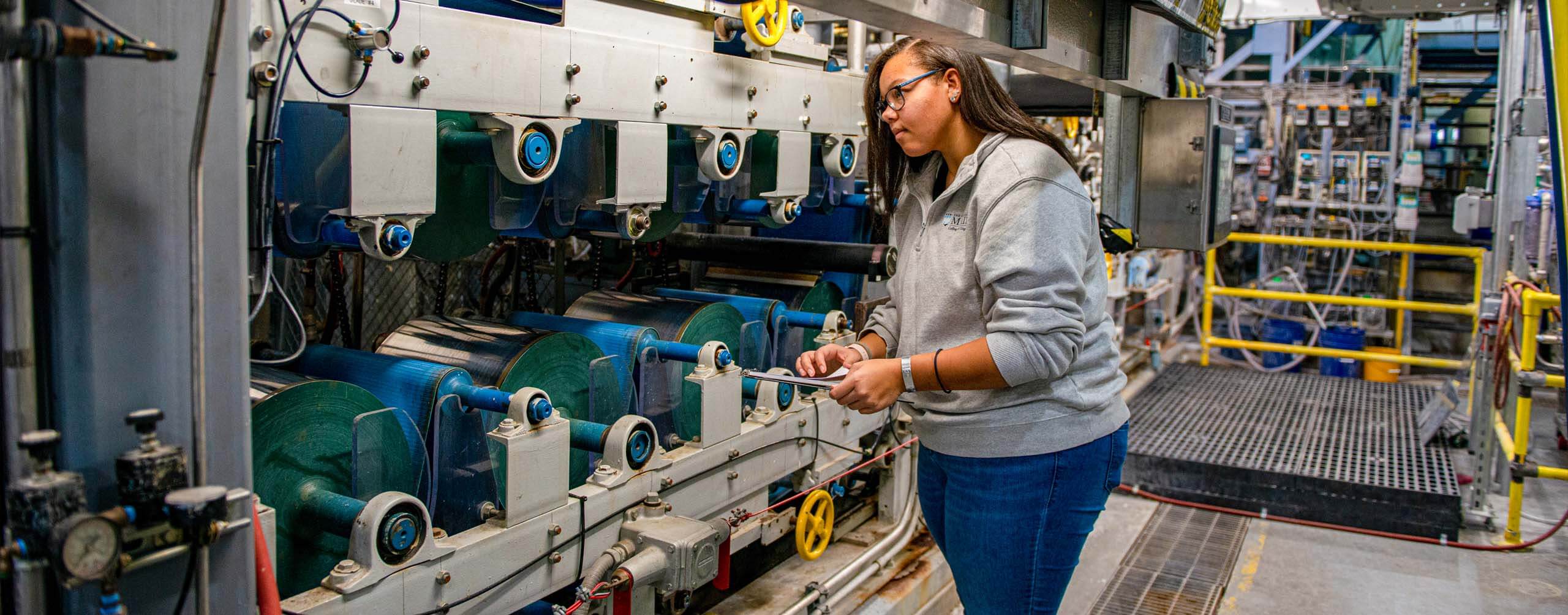
Chemical Engineering
Maine College of Engineering and Computing
Chemical engineering students study the design, operation and management of processing systems to alter and upgrade raw materials into products that are more useful to society. Many of these products, such as paper, semiconductors, plastics, fuels, foods, and pharmaceuticals are used in everyday life.
The typical chemical engineering student at UMaine has a strong interest in science and problem-solving. The curriculum develops broad knowledge in the principles of engineering and chemical sciences. Students develop the skills to solve real-world problems. Students are introduced to state-of- the-art techniques employed to design and analyze chemical processes. Laboratory work and engineering design projects are integrated throughout the curriculum to give students experience at solving problems and communicating their solutions.
Chemical engineering students receive individual attention from the professors through small class sizes, extracurricular activities, academic advising and undergraduate research opportunities. A UMaine chemical engineering degree prepares students for careers in engineering, business, law and many other fields. For instance, the B.S. degree in chemical engineering includes most of the prerequisites for acceptance into medical, dental and veterinary programs. Our undergraduate programs aim to provide a broadly based education together with a thorough training in the principles of chemical and biomedical engineering.
The department has two strong undergraduate programs for a B.S. degree in chemical engineering and a B.S. in biomedical engineering. The Bachelor of Science program in Chemical Engineering is broadly based and built on a thorough grounding in mathematics, physics and chemistry followed by the study of thermodynamics, kinetics, fluid mechanics and unit operations. Economics, process design and more specialized technical electives are studied during the final year. Key goals of the program are to develop analytical and problem solving skills, communication skills and a level of general education that will allow the graduate to function effectively as a chemical engineer in the twenty-first century.
Chemical engineering students have the opportunity to participate in UMaine’s cooperative work experience program, which provides two semesters of paid practical training and work experience with a company. The UMaine Career Center also has excellent resources for students who wish to explore internship opportunities. Undergraduates have the opportunity to work with UMaine chemical engineering faculty, for academic credit and/or for pay. Projects have included development of biofuels and their bioconversion technologies, chemical compounds for detection and imaging of cancer, model cellular membranes for the study of membrane protein interactions, molecular biosensors for detecting pathogens and toxins, improved tissue-implant compatibility, and quality assurance in food products.
Chemical Engineering
Maine College of Engineering and Computing
Jenness Hall, Room 117
207.581.2277
